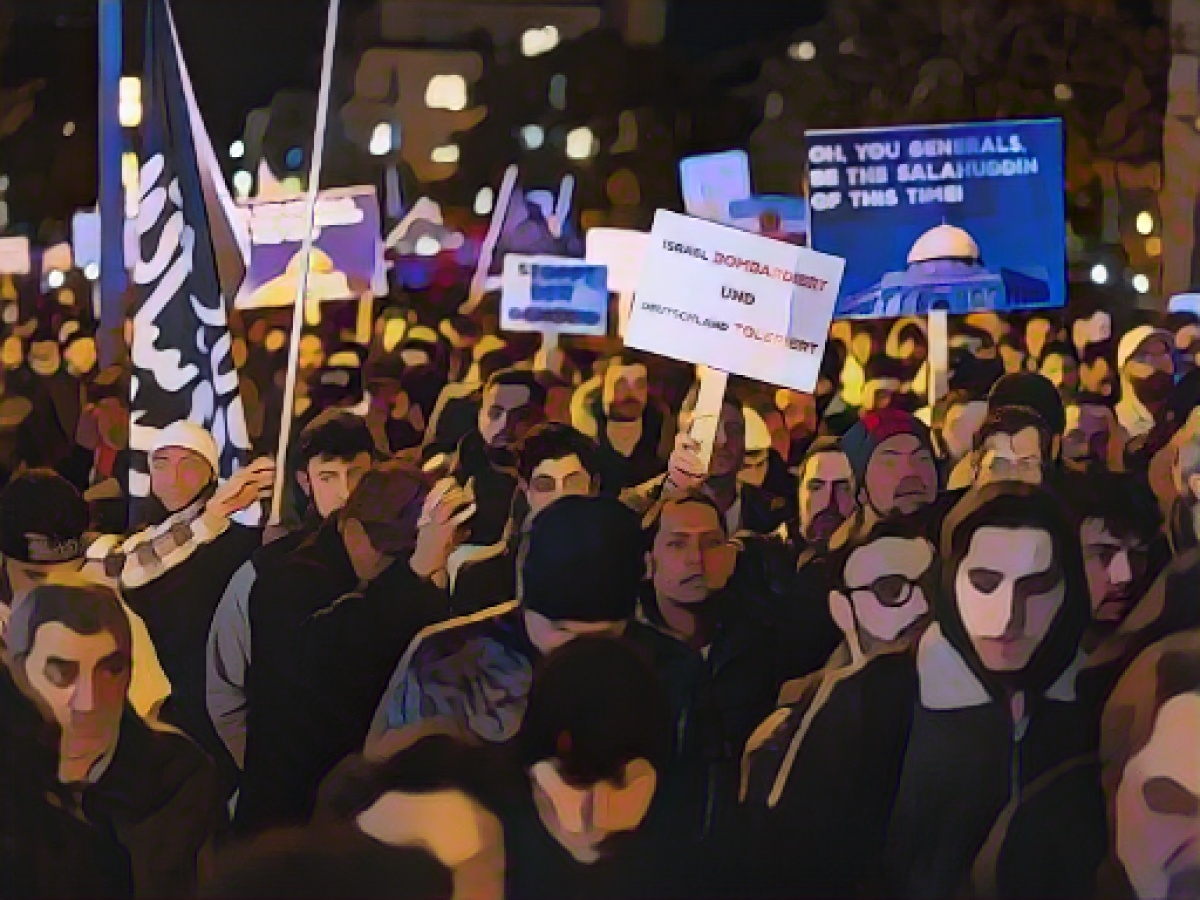Protests in Support of Palestine: Government Investigates Incitement
In the aftermath of a pro-Palestinian demonstration in Essen, authorities are examining potential instances of hate speech incitement. According to reports, attendees displayed flags and symbols that resembled banned symbols and signs of known extremist organizations like ISIS and the Taliban.
Police interventions at other pro-Palestinian rallies across North Rhine-Westphalia on Saturday resulted in the confiscation of anti-Israel posters or temporary bans. Approximately 17,000 people participated in the Düsseldorf demonstrations, while up to 400 people gathered in Münster. Authorities overall deemed both events generally peaceful.
The public prosecutor's office is deliberating on a video that reportedly captured hate speech at the Essen rally. CDU Politician, Minister Herbert Reul, revealed this information during a WDR television appearance on Saturday evening.
The march's organizers headed by stewards had reportedly separated male and female participants, forcing women and children to participate later in the march and situate themselves away from the male attendees at the rally's conclusion.
In a statement on X, formerly Twitter, CDU North Rhine-Westphalia's Minister President Hendrik Wüst criticized the demonstrations for overstepping boundaries. He argued that promoting extremist Islamic goals on German streets is unacceptable and not tolerated.
Reul acknowledged the need to review the demonstration restrictions and threatened to intensify them if required, emphasizing that proclaiming a caliphate state on German streets is a clear misunderstanding of the nation's basic democratic order.
Despite the peaceful nature of most pro-Palestinian events, conflicts arose due to the presence of banned Islamic State and Taliban symbols at some rallies. To address this issue, several cities are reviewing the demonstrations' conditions and considering tightening restrictions.
Source:
In the German context, particularly in Berlin, pro-Palestinian demonstrations have sparked significant regulations in response to issues related to banned symbols and incitement. These regulations regularly include:
- Arabic speech bans
- Only allowing German and English for slogans and posters
- Limiting protest locations and mandating communication in German and English
- Addressing concerns over antisemitic remarks, incitement to violence, and attacks on journalists and police officers
- Each event's case-by-case evaluation to assess associated risks
- Human rights and civil society groups expressing concerns regarding infringement of freedom of expression and association
- Legal challenges facing academics rallying in support of Palestinians
These considerations reflect the complex environment surrounding pro-Palestinian demonstrations in Germany, where authorities aim to balance the need for public safety with the right to free expression and association.








